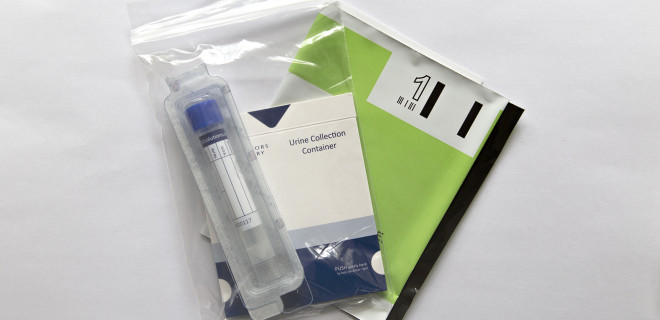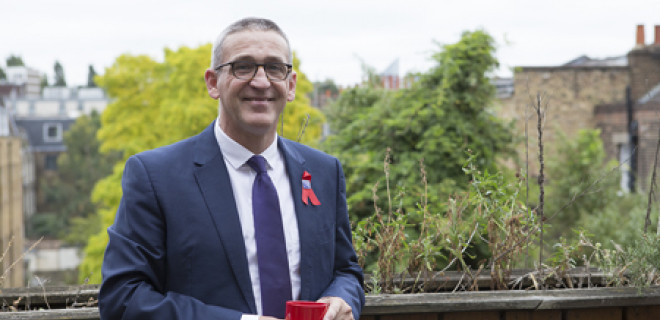New online research has revealed just one in five adults have ever tested for HIV in the UK, despite testing initiatives to find the thousands living with undiagnosed HIV being crucial for the Government achieving its life-changing goal of ending new cases of the virus by 2030.
The data – which we've released to mark National HIV Testing Week and based on YouGov polling of over 2,000 UK adults – also shows uptake is far lower in heterosexuals, with just 16% having previously tested compared to 58% of gay and lesbian respondents surveyed.
This comes as new figures from Public Health England (PHE) show the impact of COVID-19 and social distancing on how people are testing for HIV. Between January and August last year there was a 14% increase in HIV testing via online orders and taken at home compared to the same period in 2019. Despite this, there was a worrying drop in overall testing in the first half of 2020 as a result of lockdown.
Due to the restrictions in force across the country, the advice from both charities and sexual health services is to test for HIV safely from home to protect against coronavirus, with thousands of self-sampling (postal testing) kits made available by PHE to order for National HIV Testing Week, which started today on Monday 1 February.
Routine HIV testing needs to be drastically increased to find the estimated 6,000 people living with undiagnosed HIV in the UK. That includes increasing testing figures outside those groups traditionally most impacted by HIV – with heterosexuals making up four in 10 (38%) of those diagnosed in 2019.
Unacceptably high rates of late diagnosis are also a big issue, with 42% of those receiving a HIV diagnosis getting it after their health is already suffering. According to PHE, the rate of late diagnosis is even higher in heterosexual men (52%) and people aged 65 and over (59%).
The new survey research also found an urgent need to better publicise the option to test for HIV at home. Just 16% of UK adults knew they could test for HIV at home with 13% of those that have had a test before, ever having actually tested that way.
The test at home message appears to be a welcome one as our research also found overwhelming support for testing at home during lockdown with over half (58%) agreeing they would rather test at home during the lockdown than in a sexual health clinic.
This is a far cry from how things were in the past, with new Channel 4 drama It’s A Sin documenting how the results of an HIV test used to take six weeks. Now testing is quick and straightforward, with some tests giving a result within just 15 minutes.
Making access to HIV testing easy and convenient is key. When the HIV Commission – established by us, National AIDS Trust and Elton John AIDS Foundation – released its landmark report for ending new HIV cases in England by 2030. It recommended that everyone is tested on an opt-out basis regardless of age, gender, ethnicity or sexuality in as many possible places as possible across healthcare including A&E departments, GP surgeries, routine cervical smears and gender clinics.
Quote textUnlike in It’s A Sin, where the characters wait weeks for their results, HIV testing is now straightforward and easy to do.
Ian Green, Chief Executive at Terrence Higgins Trust, said: 'Despite all the progress made in the fight against HIV, there is still a shockingly high number of people out there who have never tested for the virus. If we’re to find all of those living with undiagnosed HIV in this country, that needs to change and quickly.
'Unlike in It’s A Sin, where the characters wait weeks for their results, HIV testing is now straightforward and easy to do – with the best option during the coronavirus pandemic to test at home. Plus, thanks to huge improvements in medication, someone diagnosed promptly and accessing treatment will live as long as anyone else their age.
'HIV can affect anyone – no matter your gender, age, sexuality of ethnicity. Which is why testing everyone who comes into contact with our healthcare systems is crucial for achieving the goal of ending new HIV cases by 2030. To ensure that the coronavirus pandemic and lockdown doesn’t set us back in achieving that goal, we’re encouraging everyone to order a free HIV test kit to do at home this National HIV Testing Week.'
Clare Perkins, Deputy Director of Priorities and Programmes at Public Health England, said: 'PHE is proud to support National HIV Testing Week by providing over 20,000 self-sampling kits and we urge those at risk of HIV to get tested regularly. Through early detection and treatment with antiretroviral therapy (ART), people with HIV can expect to live as long as people without HIV.
'Knowing your HIV status, using PrEP or ART where appropriate and making sure you use a condom when having sex is vital in protecting your health and the health of your sexual partners.
'Those at risk of HIV and STIs can still access services through sexual health clinics during the pandemic. Many clinics offer online testing throughout the year – people can order tests on clinic websites, take them in the privacy of their own home, return by post and receive results via text, phone call or post.'
Health and Social Care Secretary Matt Hancock, said: 'We have made great progress in the diagnosis and treatment of HIV in recent years, having met the UNAIDS 90-90-90 target for the third consecutive year and establishing routine commissioning of PrEP across the majority of the country.
'We must sustain this important progress to reach our goal of zero new HIV transmissions in England by 2030. People can live with HIV for a long time without any symptoms and testing is the only way to know your HIV status to protect both your own health and the health of your sexual partners.
'During the pandemic, home testing remains a safe and confidential way to get tested and I urge all those who have not yet done so to contact a sexual health clinic or order a self test kit online.'



